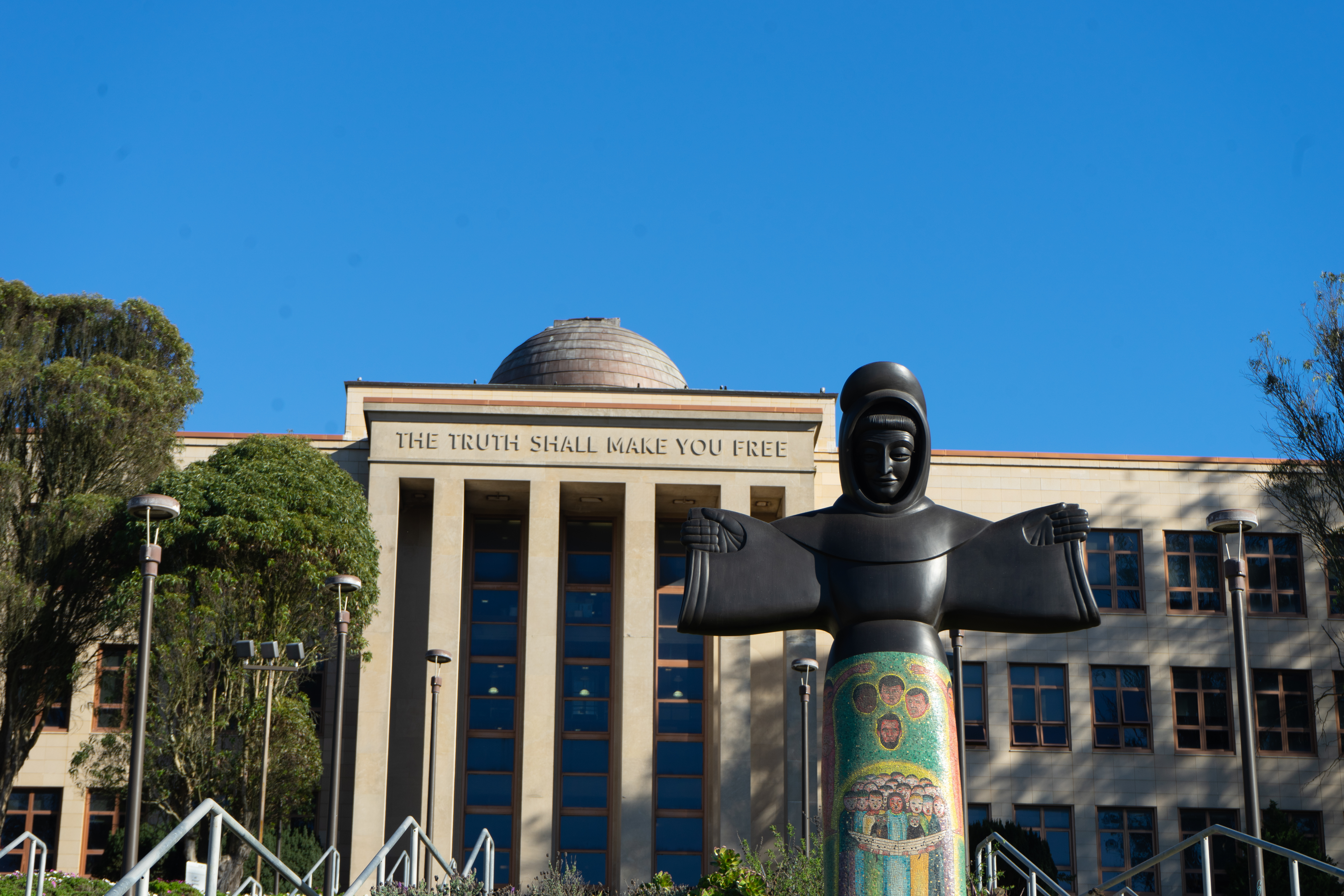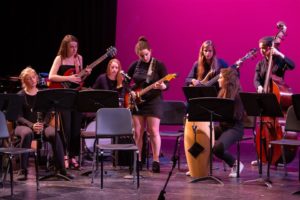City College of San Francisco (CCSF) is the largest community college in California. In the 2017-18 school year, 63,000 students took courses at CCSF. A peek into the college’s library and labs reveal a bustling hub of learning. Each table hosts dozens of students working, reading, tutoring, and talking. The majority of those students are San Francisco residents, and they are getting their education for free.
This academic year, CCSF implemented it’s Free City Program. All students who have established California residency and live in the city of San Francisco now attend CCSF for free.
“I am astounded,” said Jeff Gardiner about Free City. Gardiner, who is the Cross Country and Track coach at Lick-Wilmerding, has been teaching daytime and night English classes at CCSF on and off for the past twenty years. “It’s extremely generous because it’s expensive,” Gardiner said, of eliminating tuition.
Providing free college to an entire city is quite expensive. In 2016, San Francisco voters approved a transfer tax that allows the city to provide $5.4 million annually that covers the expenses of the $46-per-credit fees for students.
Free City is a triumph for CCSF after difficult years rocked by an accreditation and budget crisis and dropping enrollment. In 2012, a commission, a private body based in Novato, threatened to strip CCSF of its accreditation due to its unbalanced budgets. The commission ultimately required CCSF to justify why they should remain accredited, a process called “show cause” that is the last step before a school is discredited. A loss of accreditation is a disaster for a state-funded school. Colleges that lose accreditation can no longer give financial aid and the resulting ruined reputation can cause enrollment to be so low that a school is forced to close. After the accredidation crisis in 2012, CCSF enrollment dropped by tens of thousands, resulting in drastically reduced public funding.
“[The accreditation crisis] really sucked a lot of our energy,” said Tehmina Kahn, mother of Omar Hutchins ‘19, and a part-time English teacher who has taught at CCSF for two years and has worked there for fourteen. “It was really demoralizing. We fought it and we came out of it stronger. And then we got Free City. We came back from it as an institution.”
CCSF officials spent many years proving that the college met accreditation efforts. In 2016 they submitted a 500-page self-evaluation to the commission. In January of 2017, CCSF accreditation was renewed for another seven years, and in February of 2017, CCSF announced Free City.
“[Free City] covers some of {CCSF’s] reputation from the budget crisis,” Gardiner said. Free City saved CCSF as an institution. Community colleges get state funding based on the number of students enrolled. Kahn mentioned that the first semester that the program was implemented, enrollment in CCSF courses for San Francisco residents increased by 50 percent. Kahn saw more
students in her classes who came to CCSF straight from high school. CCSF officials hope that Free City will continue to boost enrollment and further funding.
“The role of City College is to uplift the city,” Kahn said. “[CCSF] gives non-traditional learners a place to go.” Kahn is inspired by her students who come to City College to change their professions and their lives. “I have two students right now who were union tradespeople,” Kahn said. “One was a plumber and one was a painter, and they both, because of illness or injury, can’t work in their jobs anymore. And they are coming to City College in their fifties, taking college English, and working out a new direction and a new career path. I find it really inspiring.”
“City College has provided the opportunity for a lot of working people to take classes that allowed them to change directions in their careers,” Gardiner said. He was able to transition into a new career path himself because of the classes he took at CCSF. Out of curiosity, he enrolled in programming classes at CCSF that ultimately lead him to a career as a writer for technological companies. Gardiner stresses the accessibility of City College that “gives the opportunity to a lot of people to take college classes and fit that into their daily life.”
City College is a crucial resource for San Francisco. The college is particularly well known for its courses in stem cell research, medical imaging, and the culinary arts. “A number of the industries in San Francisco rely on City College,” Gardiner said.
Bay Area educators are thrilled and hopeful about Free City. “It is so exciting,” said Eric Temple, Lick-Wilmerding Head of School. “To me, it’s putting our tax dollars to really good use. Because with an educated population, those are your best citizens.” Educators stressed that CCSF also enriches the San Francisco community by providing an approachable environment to learn for pleasure. “City College provides a great avenue towards enrichment,” Temple said. “You know, I always thought I would love to take a landscape architecture class there.”
Kahn hopes that Free City sparks a national movement. “Free City is fantastic for City College,” Kahn said. “It’s fantastic for San Francisco. But I’m hoping it’s something that grows and spreads and that we have thriving community college communities across the country…Lifelong learning is the cornerstone of democracy.”







